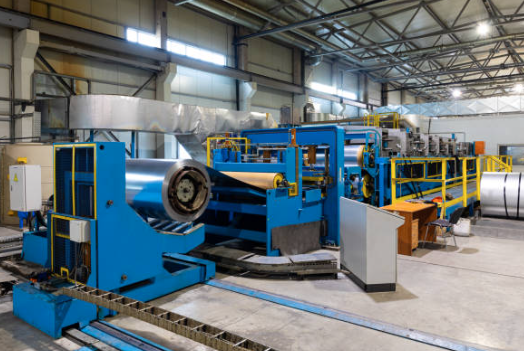
Posted on Monday, October 7, 2024
The roll forming industry is on the brink of a technological revolution, driven by advancements in automation, smart manufacturing, and sustainability. As manufacturers seek to enhance efficiency and adapt to changing market demands, roll forming machines are evolving in ways that promise to redefine the production landscape.
Automation is transforming roll forming operations, reducing labor costs and improving precision. The integration of automated controls in roll forming machines allows for real-time monitoring and adjustments, ensuring optimal performance. Automated material handling systems, such as uncoilers and stacking solutions, streamline the workflow, minimizing downtime and maximizing productivity.
The concept of Industry 4.0 is gaining traction in the roll forming sector. Smart manufacturing leverages IoT (Internet of Things) technology, enabling machines to communicate and share data across the production line. This connectivity allows for predictive maintenance, reducing the risk of breakdowns and extending the lifespan of equipment. Manufacturers can access valuable insights into production metrics, helping them make informed decisions to enhance efficiency.
Sustainability is becoming a key focus in roll forming technology. Manufacturers are increasingly adopting practices that reduce waste and energy consumption. The use of recycled materials in roll forming processes is on the rise, with advancements in recycling technology allowing for the efficient recovery of metal scraps. Additionally, energy-efficient machines are being developed to minimize the environmental impact of production operations.
The demand for customized products continues to grow, pushing roll forming manufacturers to enhance their capabilities. Advanced roll forming machines are now capable of producing a wider variety of profiles with greater precision. Manufacturers can quickly adjust machine settings to create bespoke components, catering to unique customer requirements without compromising production speed.
As industries evolve, so do the materials used in roll forming. Manufacturers are exploring the potential of advanced materials, such as high-strength steels and aluminum alloys, which offer improved performance and durability. Roll forming machines are being designed to accommodate these materials, enabling the production of lightweight yet robust components suitable for various applications, from automotive to construction.
The future of roll forming machines is bright, with innovations in automation, smart manufacturing, sustainability, customization, and materials at the forefront. As these technologies continue to advance, manufacturers who embrace these trends will not only enhance their operational efficiency but also position themselves competitively in a rapidly evolving marketplace. Staying ahead of these trends will be essential for roll forming companies looking to thrive in the years to come.

Used Purlin Roll Forming Machines for Sale Worldwide
Posted on Sunday, January 25, 2026
Pre-Owned Roll Forming Machines for Purlin & Structural Steel Profiles

Used Roof Panel Roll Forming Machines for Sale Worldwide
Posted on Sunday, January 25, 2026
Pre-Owned Roll Forming Machines for Roofing Panel Production

Used Roll Forming Machines for Sale Worldwide
Posted on Tuesday, January 20, 2026
Pre-Owned Roll Forming Machines with Inspection, Verification & Global Support

Steel Coil Supply for Roll Forming Machines Worldwide
Posted on Tuesday, January 20, 2026
Reliable Steel Coil Supply for Roll Forming, Fabrication & Manufacturing Applications
Copyright 2026 © Machine Matcher.